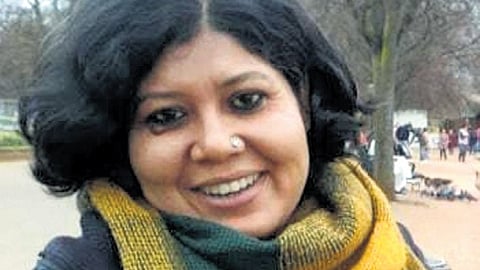Asian Women’s Film Festival: No man’s land
The Asian Women’s Film Festival (AWFF), organised by the India chapter of International Association of Women in Radio and Television (IAWRT) and held annually on the occasion of Women’s Day (March 7-9) at the India International Centre (IIC) in Delhi, has, over the years, emerged as an eminent platform for bringing together female filmmakers and their stories from across Asia. In its 19th edition this year, AWFF is all set to present an array of movies from across categories including feature films, documentaries, short fiction, animation, student films and experimental work all made by Asian women, that delve into various issues, ranging from the political to the personal, and the places where the both meet. The official curtain raiser of the festival that took place at IIC this week was attended by eminent filmmakers and scholars such as Rajiv Mehrotra and Aruna Vasudev.
Started by late media veteran Jai Chandiram, AWFF was envisioned as a space to “encourage women in Asia to make films and participate in film festivals”, says Bina Paul, renowned film editor and the festival director of AWFF 2024. Organised officially for the first time in 2005, the participation in the festival grew steadily over the years with this year’s edition receiving over 650 entries. The festival will screen close to 50 films from over 20 Asian countries which are selected by a committee under IAWRT.
Gathering at a tough time
“The overarching idea behind this year’s festival is about women gathering and forming bonds in our contemporary atmosphere of strife in various Asian countries. We are also looking a lot at archiving, how women tell their stories and present their testimonials,” says Paul. “This year’s edition also called out to non-resident women of Asian origin from across the globe, as there are a lot of filmmakers who are displaced or are migrants and those experiences are also important,” she adds.
The curtain raiser of the festival also featured a discussion on the recently launched Delhi Film Policy and how it acts as an enabling and empowering tool for women filmmakers.
Is Delhi film-friendly?
“Filmmakers often find it difficult to shoot in Delhi as various issues regarding permissions crop up here more than most other cities in the country. We want to change that and make Delhi a filmmaker friendly city,” says Niharika Rai, Secretary, Delhi Tourism, who took the audience through the policy which has created a single-window system for the timely accessibility of shoot permits, with the Delhi Tourism department acting as a nodal agency coordinating with other branches of the government. The policy also offers a subsidy of up to `3 crores for independent filmmakers.
The gender lens
“The films this year deal with various contemporary issues of social and political significance, as seen through the lens of gender,” says Aaradhana Kohli, managing trustee of IAWRT India. Humare Beech Mein (2023) by Delhi-based documentary filmmaker Ruchika Negi, made with the support of the feminist film production initiative Rough Edges, for instance, addresses the question of caste as encountered by the filmmaker and Rajkumari Prajapati, a social activist working with Sahjani Shiksha Kendra, a women’s collective in Western Uttar Pradesh, whom she works with.
“The film is essentially a conversation between us, with us examining our own caste positions, me being from an upper caste and she from a lower caste, our own biases and baggage and political understanding. Together we’re trying to understand how to make a film about caste,” says Negi.
AWFF 2024 will also see the attendance of renowned filmmakers such as Mai Masri from Lebanon who will present her film Frontiers of Dreams and Fears (2001), Shin Su-won from South Korea with her film Hommage (2021) and editor Amrita David with Towards Tenderness (2016), directed by French filmmaker Alice Diop, among others. The Siren (2021) by Iranian filmmaker Sepideh Farsi will open the festival. AWFF is, however, not just about watching movies, says Kohli. The festival also has various programmes around films and filmmaking including discussions, workshops and an exhibition. AWFF is, says Paul, about addressing “the necessity of coming together to talk, to share ideas”.

